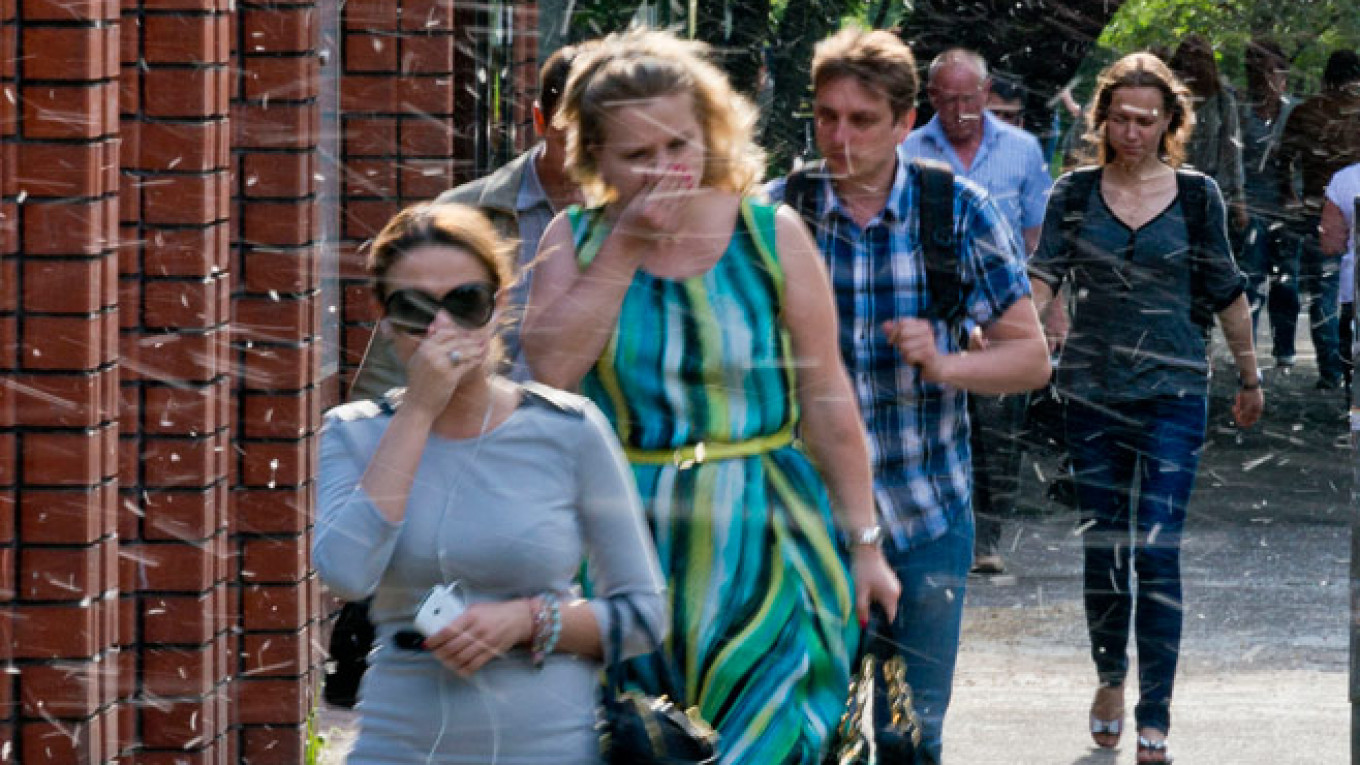As June slipped into July, you may not have noticed the absence of something that you usually notice all too much of in Moscow: poplar fluff (called pukh in Russian). The white stuff usually falls from the sky in mid-June, clogging drains, window screens and throats; lying ankle-deep on roads and park paths; and igniting like gunpowder every time a lighted match is carelessly dropped.
This year there was a bit of Moscow's famous "summer snow" drifting through the air, but not the fuzzy white-out that the city usually endures. So the question is: What happened to the fluff?
And the answer, according to the chief gardener at the Moscow State University Apothecary Garden, Anton Dubenyuk, is simple: heavy rain at just the right moment. "There were really heavy showers," he told The Moscow Times, "and the rain pounded the pods of fluff to the ground. It was fairly unusual. Each year there's more or less of the stuff, and we've never had a year without it. But this year the rain kept it down."
Another reason for less fluff is fewer trees. For two years the department of natural resources has been cutting down the allergy-inducing, sticky pod-dropping female poplars with the goal of eliminating them completely by the year 2020. The Izmailovo district alone recently cut down over 120 trees.
Less fluff will make the city more bearable for allergy sufferers, but it does have a downside. A study released in 2008 showed that poplar trees can mitigate some of the effects of pollution, including the absorption of benzene and chloroform.
A Message from The Moscow Times:
Dear readers,
We are facing unprecedented challenges. Russia's Prosecutor General's Office has designated The Moscow Times as an "undesirable" organization, criminalizing our work and putting our staff at risk of prosecution. This follows our earlier unjust labeling as a "foreign agent."
These actions are direct attempts to silence independent journalism in Russia. The authorities claim our work "discredits the decisions of the Russian leadership." We see things differently: we strive to provide accurate, unbiased reporting on Russia.
We, the journalists of The Moscow Times, refuse to be silenced. But to continue our work, we need your help.
Your support, no matter how small, makes a world of difference. If you can, please support us monthly starting from just $2. It's quick to set up, and every contribution makes a significant impact.
By supporting The Moscow Times, you're defending open, independent journalism in the face of repression. Thank you for standing with us.
Remind me later.






